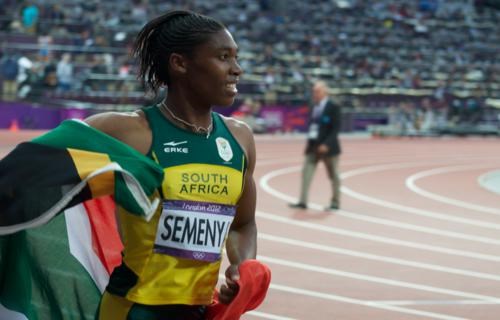IAAF's new eligibility regulations for female classification under fire
On 23rd April 2018, the International Association of Athletics Federations (IAAF) issued new Eligibility Regulations for the Female Classification (Athlete with Differences of Sexual Development); with the aim of ensuring a "fair and meaningful competition in the sport of athletics”. The criteria contained in the regulations will prevent women with a high level of testosterone in their body from taking part in middle distance races of 400 meters up to one mile.
According to the eligibility regulation, a woman “must reduce her blood testosterone level to below five (5) nmol/L8 for a continuous period of at least six months (e.g., by use of hormonal contraceptives)” to be eligible. This means that female athletes with differences of sexual development (DSDs) have to maintain those levels through hormone therapy if they want to run in prestigious competitions. Otherwise, they would compete against men or in non-international events.
The case of Caster Semenya
It is a “choice of no choice,” commented Katrina Karkazis, a bioethicist expert on hyperandrogenism and athletic performance, during an interview with the New York Times. She explains how these new regulations can be humiliating for women with DSDs and harm especially athletes from developing countries that do not conform to the Western standard of femininity; ending with the consequential withdrawal of some the best female runners.
This would be the case of the middle-distance runner Caster Semenya, who recently won two gold medals in the 800m and 1,500m at the Gold Coast Commonwealth Games. In fact, she does not meet the requirement imposed by the IAAF´s regulation on the maximum level of testosterone in her body. “God made me the way I am and I accept myself. I am who I am and I am proud of myself,” Semenya writes on her Twitter account in response to the new regulation.
According to the South African minister of sport, Tokozile Xasa, the IAAF´s rules, which do not cover neither the pole vault or the hammer throw, seem to be specifically made for the distances run by Semenya. Indeed, she has been under the scrutiny of the association since 2009 because of her alleged “advantage” over the competition.
"The IAAF uses the same tactic to exclude those who have defined the past decade as champions and treasures of their home countries," commented the African National Congress referring to the discriminatory rules imposed in the country during the Apartheid.
Female athletes with DSDs, like Semenya, have a much higher level of testosterone than their women contestants. According to the IAAF, this “advantage” is a key factor in distinguishing male and female categories. Indeed, for the IAAF, while the typical female range of circulating testosterone in serum is 0.12 to 1.79 nmol/L, in males´ bodies it varies from 7.7 to 29.4nmol/L.
The question regarding the scientific evidence of the regulations
However, the scientific proofs used by the IAAF to establish those regulations have been questioned. As a matter of fact, they are based on an unpublished study that is not very clear about the methods used to test the performance advantage of women with high level of testosterone, critics say. Similar concerns were raised on a previous document published by the IAAF in 2015, which was proved to be fallacy and with a poor scientific evidence by the Court of Arbitration for Sport (CAS). Columbia professor Andrew Gelman found the IAAF research behind the new regulation “such a mess that I can’t really figure out what data they are working with, what exactly they are doing, or the connection between some of their analyses and their scientific goals,” he said on his blog.
The critiques raised to those regulations are also related to the fact that women with DSDs have naturally high levels of testosterone, therefore, according to Andy Bull, it is unfair to consider it as a problem and not as another natural advantage as it is for physical characteristics in other sports. For instance, the height in basketball or bigger feet in swimming.
“The rule is neither racist nor sexist. The sport has a lot of athletes with DSD. It is not just the one or two females you hear about in the media. In elite female athletics, the number of intersex athletes is 140 times more than you might find in the normal female population,” the IAAF wrote on Twitter in response to the several negative comments. Anyway, the critiques do not come only from the outside. In a protest against the the new regulation, which he calls an “ostracising”, Steve Cornelius from the IAAF Disciplinary Tribunal resigned.
“Sadly, I cannot in good conscience continue to associate myself with an organization which insists on ostracising certain individuals, all of them female, for no reason other than being what they were born to be. The adoption of the new eligibility regulations for female classification is based on the same kind of ideology that has led to some of the worst injustices and atrocities in the history of our planet,” wrote Cornelius in his resignation letter.
More information






